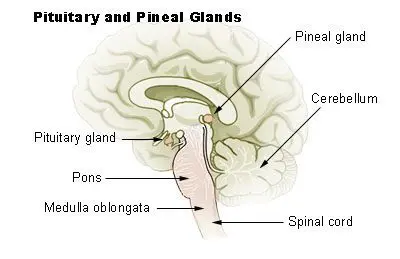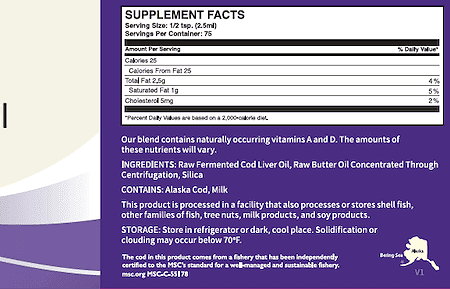Have you been diagnosed with a fluoride pineal gland? It surely sounds foreign to a layman but scientific research has been conducted on the effects of treatment chemicals on the brain.
Continue reading to get more knowledge about your condition.
The pineal is one of the most essential and unique organs and endocrine glands in the human body, producing hormones that are highly needed to preserve optimal human health.
The pineal is a very small pine-shaped cone made up of pineal cells, neuronal protective antioxidants, and neuroglia cells, which are found in the epithalamus, the deepest part of the human brain.
It is a major part and can never be left out when mentioning the body’s endocrine system. It helps to regulate your sleep at night via the secretion of a hormone called melatonin, which maintains the circadian rhythm (sleep/wake cycle).
As crucial as this gland is, it has the highest risk/probability and susceptibility for calcification among all organs and tissues found in the human body. Calcification occurs when this gland becomes packed with fluoride elements alongside calcium and other elements.
This gland receives signals about light-dark cycles from the photoperiodic environment. These signals are later read, coded, and translated to produce melatonin hormone.
Which controls the sleeping pattern and quality (play an important role acting as internal body clock), allow passage of water gas, aid brain health cognitive process, and protect the body from free radicals capable of causing harm and oxidative stress.
Fluoride and pineal gland
The role of this tiny gland remains a mystery, the role and information about it were discovered recently, and researchers have not defined its role and function. It is often called the "third eye" by monks.
According to philosophy, this third eye represents a symbol that depicts spiritually all-knowing knowledge and is often called a pathway to the soul’s liberation. This gland is also dependent on the harshness of the environment.
The more the weather becomes harsh, this gland enlarges. When an organism is removed from its former habitat to a new niche, it experiences certain changes in the gland’s functioning.
The genetic coding or phenotypic makeup can also affect the size and growth of glands. Fluoride is a very reactive ionic compound extracted from fluorine (the most reactive element). Research shows that fluoride is mostly consumed, found, or derived from rocks. It is also derived in minute quantities from sodium fluoride, tablets, and toothpaste. After deglutition, fluoride is absorbed in the stomach and intestines, entering the bloodstream directly.
When the fluoride level becomes high and concentrated in the body, it accumulates with calcium and other mineral deposits in the pineal. This decreases the capacity of the body system to secrete melatonin and regulate circadian rhythm.
The gland is sensitive to light, which induces less daytime secretion and is high at night. When the level and amount of fluoride becomes concentrated in the gland, it leads to calcification, which affects melatonin production and other normal functions.
Fluoride and the pineal share a broad relationship, which should not be overlooked in body system and function.
Pineal gland fluoride
This gland does not become calcified or filled with fluoride particles or molecules in a day. Its calcification occurs due to an accumulation while its bad effects set in over a long period.
You may have wondered how fluoride particles and spots get into your body and accumulate without consuming them directly via the oral cavity; it gets into the body system via different methods.
Some of these ions are consumed via unhealthy foods, junk, processed foods, toothpaste, etc. If proper measure or care is not chosen or put in place, it will become hard and calcify to form gland abnormalities.
Proper care has to be taken because the glands are not protected or secured by the blood-brain barriers from the rest of the body. Its arterial blood supply is majorly from the kidneys, which provide massive blood flow.
The accumulation affects the level of an important component of the bone named hydroxyapatite. This component becomes reduced in the bone and poses many hazards to the body system.
Fluoride pineal gland research
Several scientists conducted its effects research to determine the effects on the pineal, but one of the important researches shall be discussed below; according to a Scientist named Jennifer Anne Luke.
She researched the effect of the fluoridated gland on the sexual maturity of young females and its pathophysiology in 1997. The research was conducted in the United States after it was noticed that females reached their puberty stage earlier than the olden day’s trend.
The research was able to show that the effect of accumulation in the gland causes early sexual maturity in females. It was noticed that the pineal is situated close to the center of the brain, which controls the central nervous system.
The gland is often regarded as one of the important components of the central nervous system (CNS). The effect on the gland affects the CNS to assert a sexual change.
Though there are speculations that it does not affect CNS because of the blood-brain barrier partitioning it from the brain. All these physiological processes are believed to trigger and cause a change in the amount of melatonin in the blood, which hastens sexual maturity.
Two different scientists also carried out related experiments to determine if the consumption of fluoridated water would speed up their puberty stage. Schlesinger’s first controlled experiment was carried out in Newburgh, New York, in 1956.
It was then revealed that girls drinking fluoridated water reached puberty five months faster than girls drinking non-fluoridated community. Decades later, Farkas also discovered in 1983 that post-monarchical was present in girls of the same age at high consuming towns compared to low consumption villages.
Conclusion
The pineal is very special (seat of the soul) because of its close relation to the brain. It is a target site that accumulates over a long term to form a hard calcareous shell, which causes fluoride pineal gland calcification.


























